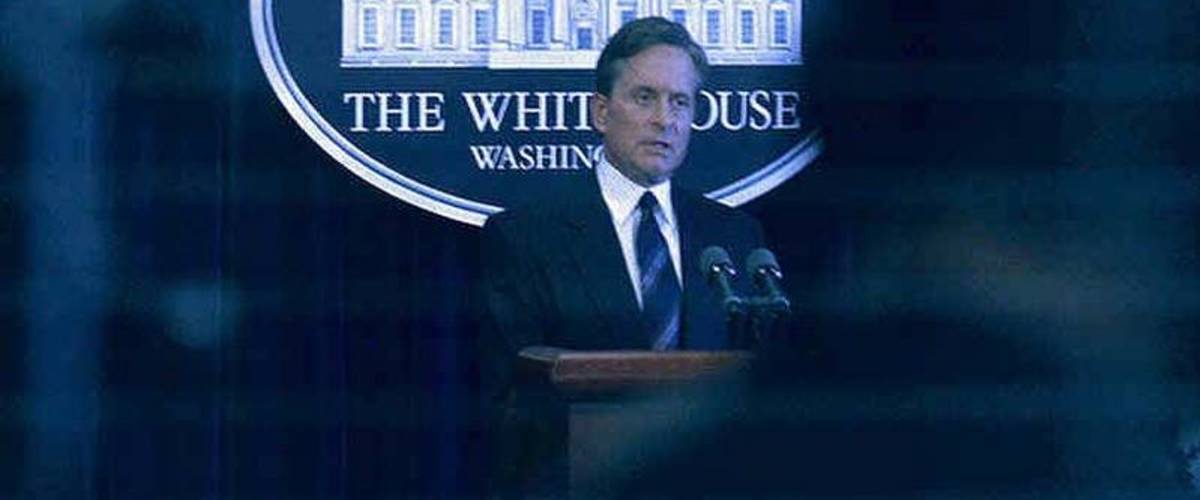
Directed by: Steven Soderbergh
Starring: Michael Douglas, Benicio del Toro, Catherine Zeta-Jones, Don Cheadle, Miguel Ferrer, Dennis Quaid, Luis Guzman, Steven Bauer, Clifton Collins, Jr., Albert Finney, Erika Christensen, Topher Grace, Amy Irving, James Brolin
With marijuana being legalized in numerous states, the jury is still out on whether this is the first step towards legalizing other more addicting, deadlier drugs like cocaine or heroin. Whatever the future holds, Traffic's message is as relevant today as it was when it was made eighteen years ago: The War on Drugs is a losing proposition. Even a government as large as the United States' can't possibly come up with adequate money or resources to fight it. The cartels can outspend any government, and trying to shut them down is equivalent to Whack-A-Mole. One is knocked down, then another pops up elsewhere.
Traffic does not take the defeatist approach, however. Its message is hopeful. The war on drugs can't be won in one fell swoop. Its customers need to get clean and, one by one, a client who decides to stay clean is one less customer the drug pushers can sell to. Writer Stephen Gaghan and director Steven Soderbergh understand that drugs are a national health crisis, and many years later, it seems we are only coming around to this realization. The cartels depend on keeping their products inexpensive so the customers can continue to buy them cheaply. Robert Wakefield (Douglas) is a judge appointed the new drug czar (even that title makes him sound like the head of a powerful cartel) who naively believes his "ten-point plan" and cooperation with corrupt Mexican government officials will even make a dent. Then, the drug issue hits closer to home for Robert, as his teenage daughter Caroline (Christensen) gets hooked on hard drugs and Robert realizes there is no ten-point plan which can rescue her. How would it look for the U.S. drug czar to be unable to control addiction in his own household? Which is the point: addiction is not something which can be controlled by external forces. It can only be controlled by the addict.
Traffic contains other stories which interlock either directly or indirectly to Robert's. A Tijuana cop (del Toro) is caught up unwittingly in the war between rival cartels, and just tries to use his wits to stay alive. We also have a California millionaire (Bauer), who is arrested by the DEA for drug trafficking and leaves his wife (Zeta-Jones) desperate and with no access to the frozen accounts. She believed her husband was a legit businessman, but discovers otherwise, and her story takes a surprising turn. We also meet the DEA agents (Cheadle and Guzman), who spend their time in a van wise-cracking and performing surveillance while trying to extract information from a cynical government witness (Ferrer), who wonders aloud about what putting away one drug trafficker will mean in the grand scheme of things.
Soderbergh keeps the tension ratcheted as lives sacrificed to the drug wars are played out. Morals are out the window as the participants just try to survive one more day. Caroline, once an A-student and a young woman with a bright future, is now prostituting herself for a fix and, if she can see her way to the other side, will spend the rest of her days as a recovering addict. That is the upside. The downside is death or prison. There isn't much in-between. For Javier Rodriguez (del Toro), his own interaction with the cartels leads to his own private hell. He sees friends murdered and lives destroyed, but he must keep his wits about him in order to survive. del Toro (who won a Best Supporting Actor Oscar for his role) keeps everything close to the vest, relying on the slightest facial expression or body language to convey his thoughts to us.
If there is a character we can identify the most with, and I surely could, is Robert, who is trying to juggle his daughter's drug crisis with his professional responsibility to his new position, leaving his wife (Irving) to handle the ever-worsening problem almost on her own. Caroline is soon stealing valuables from her home and traveling to the inner city for her next high. Her boyfriend (Grace) explains to Robert that drug dealing is more lucrative than getting a real job because a dealer can make more in two hours than others can make in a forty-hour work week. What would you do if presented with that opportunity?
Traffic allows us to come to our own conclusions about whether the war on drugs is really worth it. It doesn't beat us over the head with pious morality, but instead presents its issues in realistic terms and asks us to decide. This makes Traffic all the more engrossing. What would we do if we were in their shoes? Despite the movie's own leanings that the war on drugs can't practically be won, it gives us a hopeful ending in which one of the characters achieves his dream of seeing a baseball field built in his hometown. He understands that giving people a way out of their harsh lives in one step towards winning.
No comments:
Post a Comment